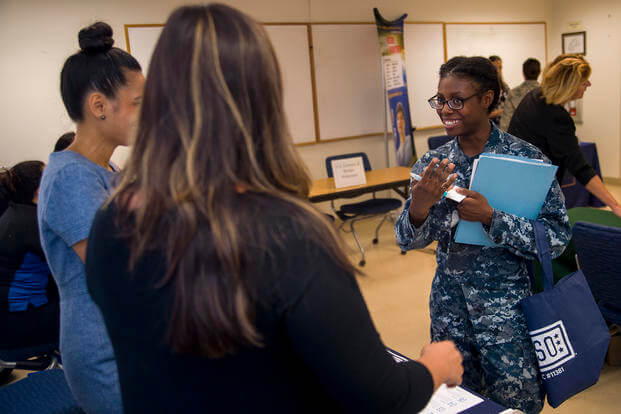What happens to operational types after the firefights end? They transition from service either due to retirement, drawdown, medical or early out, and they look for employment.
How do their tactical skills learned in field environments translate into civilian employment? The point is that many don't. That is why service members are encouraged to use the same level of dedication and commitment invested in the pursuit of the enemy to prepare themselves for life after the military by obtaining their degree while serving.
I recently interviewed someone who was operational as a member of the Air Force Tactical Air Control Party (TACP). He was told in December 2011 that he was being involuntarily separated. He had been trained in countless elite military schools to include Air Assault, Pathfinder, Weapons School, Survival School, Pre-Ranger School, Naval Gunfire and TACP Tech School, but he didn't have a degree.
And he didn't have a clue regarding what he would do after he left. He requested to be referred to by his call sign, "Saint," for the purposes of this article. Saint worked in close air support on very dangerous assignments. The majority of his training and interactions were with the Army on a daily basis.
He routinely aligned with units such as 5th Special Forces Group (SFG), 3rd Army, CENTCOM Joint Fire Power Team and the 101st Infantry Division. "I loved working with the Army," Saint said. "TACP is an operational career field. I had the best of both worlds; I got to play in the dirt and still wear the blue uniform."
All of that changed unexpectedly when Saint was told in December 2011 that he would be involuntarily separated. He was numb. He had stellar physical training (PT) scores, no counseling issues, an outstanding record and never suspected that this would happen to him.
"I felt really bad," he said. "I felt like everything that I gave to the military was no longer a consideration. It was kind of like a divorce, but worse." He accepted the retirement package and searched for a job, but it was very challenging. "I was unemployed for eight months. We lived off my severance pay ($45,000), along with our savings. My wife had a job, and I got odd jobs."
Despite the operational tempo of his previous assignments, he wished that he had made different choices. "I wish I had gotten my degree earlier so I wouldn't have to go through all the hustle and bustle of trying to catch up with the people I am currently competing against for jobs," he said.
To help his job search, he started an online bachelor's degree program in information systems technology last year from Kaiser College. "My university accepted my Community College of the Air Force [CCAF] credits and awarded me 20 undergraduate credits from previous military training," he said. "I was left with only two years to complete my degree. It was a relief that I didn't have to do as much as I would have, had I not gotten credit."
Saint highly recommends that all service members obtain their degrees by registering for college immediately, because he knows the impact of not having a diploma as he searched for employment. "Going back to school was fun," he said. "I like learning, but I really miss the military high-ops tempo. I really miss it."
Life has gotten significantly better for "Saint" due to the decision to pursue his degree. "I went into the Reserves, and TA [tuition assistance] is completely paying for my degree. I will finish up my 20 years and retire at age 60, although I was planning on getting it at the age of 39."
Saint is "adjusting fire" as he was trained to do in the military, transitioning to life as a civilian and seeking full-time employment. He will complete his degree in August of this year because of the condensed nature of his program and the credits he was awarded for previous training. He is in the process of relocating to another city, because his wife received a new job. "She followed me around for years, so I can follow her now," he said.
What can be learned from Saint's story? His transition story reflects a certainty during a very uncertain period within the Department of Defense due to budget cuts and an active drawdown. One way or another, every member of the service will leave. The question remains: Will you be prepared?
Find the Right Veteran Job
Whether you want to polish your resume, find veteran job fairs in your area or connect with employers looking to hire veterans, Military.com can help. Subscribe to Military.com to have job postings, guides and advice, and more delivered directly to your inbox.











